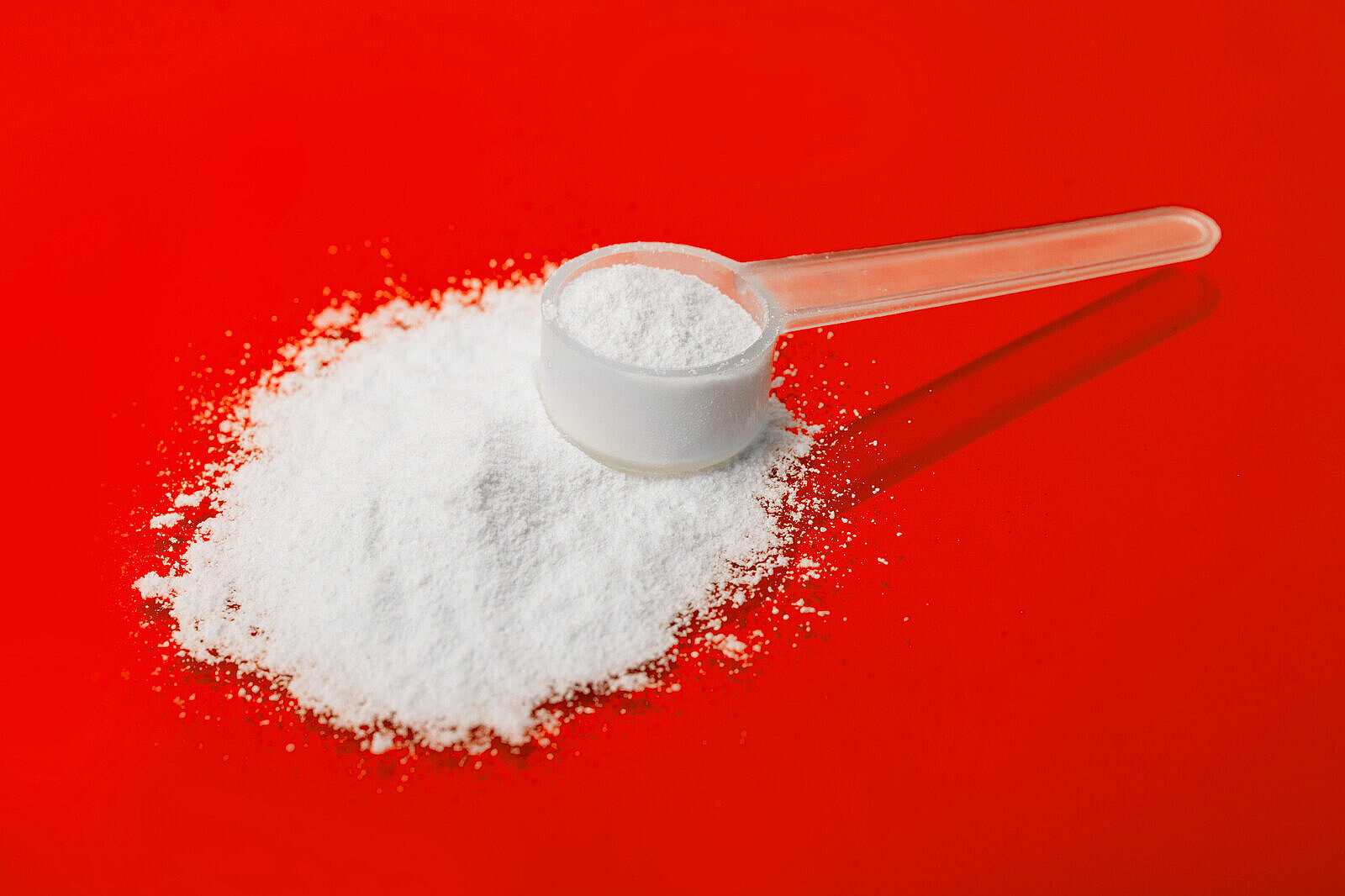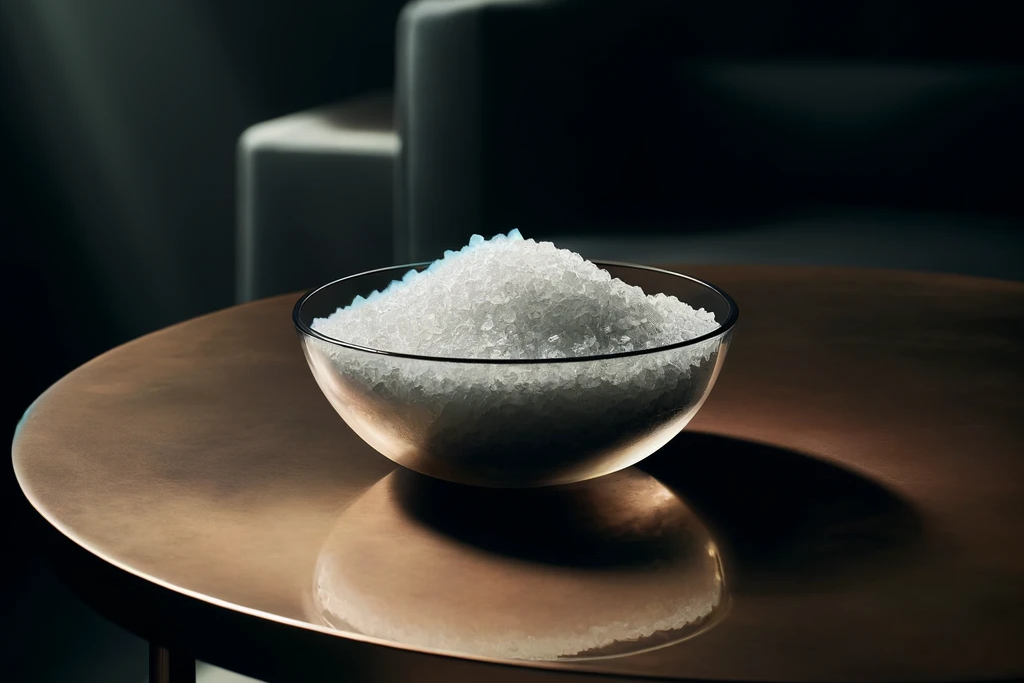Potassium chloride

What is potassium chloride?
Potassium chloride (KCl) is the potassium salt of hydrochloric acid. It forms colorless, salty-bitter tasting crystals that dissolve well in water. Potassium chloride is approved as a food additive in the EU under the name E508. The industry mainly uses it as a flavor enhancer and firming agent.
Why do dogs need potassium chloride?
Potassium chloride is an important source of the vital electrolyte potassium. Potassium regulates the water balance, nerve and muscle activity and the acid-base balance in your dog's body. A lack of potassium can lead to serious health problems such as muscle weakness, paralysis, cardiac arrhythmia or kidney failure.
How much potassium chloride should a dog get?
The optimal amount of potassium chloride depends on various factors such as the dog's age, weight, health status and diet. In general, healthy dogs tolerate moderate amounts of potassium chloride well as long as they have sufficient water available. The recommended daily dose for dogs is around 0.6 to 1 gram per kilogram of body weight.
When is potassium chloride harmful?
Potassium chloride can be harmful if the dog gets too much or too little of it. An overdose of potassium chloride can lead to hyperkalemia, an increase in the potassium level in the blood. This can lead to symptoms such as nausea, vomiting, diarrhea or cardiac arrest. An underdose of potassium chloride can lead to hypokalemia, a reduction of the potassium level in the blood. This can lead to symptoms such as loss of appetite, tiredness or shortness of breath.
How can the correct potassium chloride content in dog food be ensured?
The best way to ensure the correct level of potassium chloride in dog food is to provide a balanced diet with high-quality ingredients. Many natural foods such as meat, fish, eggs, dairy products, vegetables and fruit already contain enough potassium for your dog. However, you should be careful not to add too much salt or other potassium-rich additives to the food, as this can lead to an overdose.
If your dog suffers from chronic potassium deficiency, your vet may prescribe special supplements or medications to increase potassium levels. For example, intravenous potassium chloride injections or oral potassium chloride supplements can help treat or prevent hypokalemia. However, you should always follow the vet's instructions and not change the dosage on your own.
Potassium chloride is an important mineral for your dog and has many positive effects on his health. However, you should make sure that your dog does not get too much or too little potassium chloride. A balanced diet with natural foods is the best choice for your four-legged friend.
Properties 2
Are you looking for other ingredients with a specific property?
Just click on them to find more.
If you notice any signs of hypersensitivity or poisoning in your dog, you should see your vet immediately. We are not a substitute for a vet, but we try to be as accurate as possible. Every dog reacts differently and we recommend you get a second opinion or consult your vet if in doubt.
Stay healthy and take good care of your four-legged friend!😊
Similar to Potassium chloride
Sodium chloride fulfills several important functions in the dog's body. Firstly, it is involved in the production of hydrochloric acid in the stomach, which is necessary for digestion. Secondly, it...
Your dog needs a sufficient amount of magnesium every day to stay healthy and productive. The recommended daily dose is around 10 to 12 milligrams per kilogram of body weight. Magnesium can be...
Calcium chloride is a salt that consists of two parts chlorine and one part calcium. It is a white, crystalline powder that dissolves easily in water. Calcium chloride has various properties that...
Sodium citrate (trisodium citrate) is the sodium salt of citric acid, an organic acid that occurs naturally in citrus fruits. It is known for its ability to regulate pH and stabilize metal ions in...



